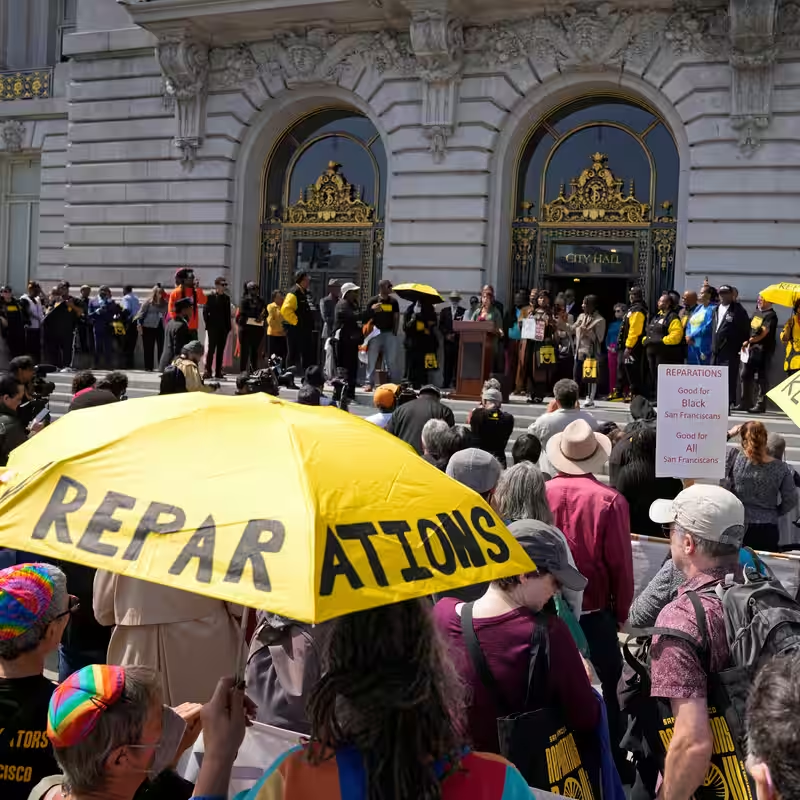Table of Contents
- California Reparations Backtrack Amid Political Pressure
- What Newsom Approved—and Rejected
- Why the Shift? Public Opinion and Legal Hurdles
- What Happens Next for Reparations in California?
- Sources
California Reparations Backtrack Amid Political Pressure
Just a few years after launching the nation’s most ambitious state-level effort to address the legacy of slavery, California’s reparations movement is stalling. Governor Gavin Newsom, once seen as a progressive champion on racial justice, has vetoed a series of bills that would have delivered concrete benefits to descendants of enslaved people—even as he signed legislation creating a new state agency to verify eligibility for future reparations.
The move marks a significant pivot from the momentum that followed the 2020 murder of George Floyd, which galvanized lawmakers across the country to confront systemic racism. California’s reparations task force, established in 2021, spent two years studying the issue and ultimately recommended over 100 policy changes—including a staggering $1.2 million payment to some elderly Black residents harmed by historic injustices.
What Newsom Approved—and Rejected
On October 14, 2025, Newsom signed AB 1405, a bill that establishes the California Reparations Verification Agency. This new body will determine who qualifies as a descendant of slavery—a necessary first step before any benefits can be distributed.
However, the governor simultaneously vetoed three companion bills that would have provided immediate, tangible support:
- College admissions preference for verified descendants
- Home loan assistance through a dedicated 10% allocation in a state housing program
- Restitution for racially motivated property seizures, modeled after the successful return of Bruce’s Beach in Los Angeles County
“Establishing this agency is an incredibly powerful demonstration and first step,” said Assemblymember Isaac Bryan, author of the college admissions bill. “But many folks are past the window-dressing moment.”
Newsom’s Reasoning
In his veto messages, Newsom cited legal and fiscal concerns:
- He argued that colleges already have discretion to consider lineage in admissions—making new legislation “unnecessary.”
- He warned that earmarking housing funds for reparations recipients could jeopardize federal funding.
- He called the property restitution bill too costly, noting it could expose the state to “hundreds of millions of dollars” in un-budgeted liabilities.
Why the Shift? Public Opinion and Legal Hurdles
The governor’s cautious stance reflects broader political realities. A 2023 UC Berkeley poll found that 59% of California voters oppose cash reparations. Nationally, a 2021 Pew Research survey showed 68% of Americans reject reparations—though 77% of Black Americans support them.
Legal challenges have also mounted. The U.S. Supreme Court’s 2023 ruling against affirmative action cast doubt on race-conscious policies, with Republican lawmakers like State Senator Rosilicie Ochoa Bogh questioning whether reparations-based admissions could survive constitutional scrutiny.
Moreover, Newsom is widely rumored to be eyeing a 2028 presidential run. With national sentiment leaning conservative on reparations, some analysts believe he’s tempering his image to appeal beyond California’s liberal base.
What Happens Next for Reparations in California?
Despite the vetoes, supporters see the new verification agency as a critical foundation. “You can’t start distributing things—whether it’s housing, education, or cash—until you can establish lineage,” said Senator Akilah Weber Pierson, who authored the agency bill and chairs the California Legislative Black Caucus.
Still, she acknowledged the political and financial constraints: “We are not in a position as a state where we can do everything that we would like to do.”
Experts like Duke University’s Dr. William A. Darity Jr., who advised California’s task force, argue that true reparations would require federal action. “Closing the racial wealth gap in California alone would cost more than the entire state budget,” he noted.
For now, the movement shifts from bold proposals to bureaucratic groundwork—leaving many descendants wondering if justice will ever move beyond study groups and symbolic gestures.




